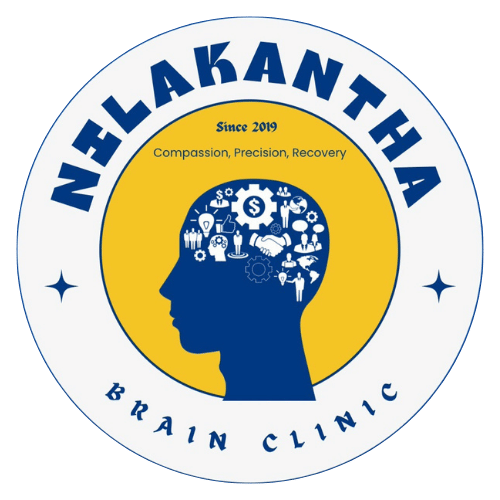Comprehensive Guide to Ataxia: Symptoms, Causes, Diagnosis, and Treatment in Cuttack
Table of Contents
- What is Ataxia?
- Types of Ataxia
- Spinocerebellar Ataxia (SCA)
- Friedreich’s Ataxia
- Acquired Ataxia
- Episodic Ataxia
- Symptoms of Ataxia
- Causes and Risk Factors
- Diagnosing Ataxia
- Treatment Options
- Medications
- Therapies
- Surgical Interventions
- Lifestyle Adjustments
- Why Choose Nilakantha Brain Clinic?
- How to Find the Best Neurologist Near You
- Living with Ataxia: Coping Strategies and Support
- Research and Future Developments in Ataxia Treatment
- Conclusion
What is Ataxia?
It is a neurological disorder characterized by a lack of muscle control, leading to difficulties in coordination, balance, and speech. It occurs due to dysfunction in the cerebellum, the part of the brain responsible for regulating movement. It can develop suddenly due to injury or stroke, or progress gradually from genetic or degenerative conditions.
Early diagnosis and intervention by the best neurologist in Cuttack are crucial to managing symptoms and slowing disease progression. Without proper treatment, ataxia can lead to severe disability, affecting mobility, speech, and daily activities.
Types of Ataxia
1. Spinocerebellar Ataxia (SCA)
Spinocerebellar ataxia is a hereditary condition caused by genetic mutations (e.g., ATXN1, ATXN3) that lead to progressive degeneration of the cerebellum. There are over 40 subtypes of SCA, each with varying symptoms.
- Symptoms:
- Poor coordination
- Slurred speech (dysarthria)
- Vision problems (nystagmus)
- Difficulty swallowing (dysphagia)
2. Friedreich’s Ataxia
Friedreich’s ataxia is an autosomal recessive disorder caused by a mutation in the FXN gene, leading to impaired mitochondrial function. It affects both the nervous system and the heart.
- Symptoms:
- Progressive loss of coordination
- Muscle weakness
- Cardiomyopathy (heart disease)
- Scoliosis (curvature of the spine)
3. Acquired Ataxia
This type of ataxia is not inherited but develops due to external factors such as:
- Stroke or brain injury
- Chronic alcoholism (cerebellar degeneration)
- Vitamin deficiencies (B12, E, or thiamine)
- Autoimmune disorders (multiple sclerosis, celiac disease)
4. Episodic Ataxia
A rare form of ataxia where symptoms occur in episodes, triggered by stress, caffeine, or physical exertion. It is caused by ion channel mutations and can be managed with medications like acetazolamide.
For accurate diagnosis and subtype identification, consult a top neurologist in Cuttack like Prof. Dr. Rohit Chhirolya at Nilakantha Brain Clinic.
Symptoms
Ataxia symptoms vary depending on the type and severity but commonly include:
- Gait instability (stumbling, wide-based walking)
- Dysarthria (slurred or slow speech)
- Nystagmus (involuntary eye movements)
- Fine motor difficulties (trouble writing, buttoning clothes)
- Tremors and muscle stiffness
- Dysphagia (difficulty swallowing)
- Fatigue and dizziness
If you or a loved one experience these symptoms, seek evaluation from a neurology doctor in Cuttack for early intervention.
Causes and Risk Factors
Several factors contribute to ataxia, including:
- Genetic mutations (SCA, Friedreich’s ataxia)
- Autoimmune diseases (MS, paraneoplastic syndromes)
- Toxins (alcohol abuse, chemotherapy drugs)
- Metabolic disorders (vitamin B12/E deficiency)
- Infections (Lyme disease, viral cerebellitis)
Understanding the underlying cause is essential for effective treatment.
Diagnosing Ataxia
A best neurology specialist in Cuttack will conduct:
- Neurological Examination – Testing reflexes, coordination, and balance.
- Genetic Testing – Identifying hereditary ataxias.
- MRI/CT Scans – Detecting cerebellar atrophy or lesions.
- Blood Tests – Checking for vitamin deficiencies or autoimmune markers.
- Electromyography (EMG) – Assessing nerve damage.
At Nilakantha Brain Clinic, advanced diagnostics ensure accurate diagnosis and personalized treatment plans.
Treatment Options
1. Medications
- Antioxidants (Idebenone) – Slows Friedreich’s ataxia progression.
- Muscle relaxants (Baclofen) – Reduces spasticity.
- Immunosuppressants – For autoimmune-related ataxia.
2. Therapies
- Physical Therapy – Improves mobility and balance.
- Speech Therapy – Enhances communication skills.
- Occupational Therapy – Helps with daily activities.
3. Surgical Interventions
- Deep Brain Stimulation (DBS) – For severe tremors.
- Spinal Fusion – In cases of scoliosis (Friedreich’s ataxia).
4. Lifestyle Adjustments
- Assistive devices (walkers, wheelchairs).
- Diet modifications (high antioxidants, vitamin supplements).
- Exercise regimens (yoga, tai chi for balance).
A neuro doctor in Cuttack can tailor a treatment plan to individual needs.
Why Choose Nilakantha Brain Clinic?
- Expertise: Prof. Dr. Rohit Chhirolya, a DM Neurologist, specializes in movement disorders.
- Advanced Diagnostics: Genetic testing, MRI, and neurophysiology under one roof.
- Holistic Care: Combines medication, therapy, and counseling.
For consultations, check the Cuttack neurology doctor list or visit Nilakantha Brain Clinic.
How to Find the Best Neurologist Near You
- Specialization: Look for neurologists experienced in ataxia.
- Technology: Ensure access to genetic testing and neuroimaging.
- Patient Reviews: Testimonials highlight compassionate care.
Dr. Chhirolya is recognized as the top neurologist in Cuttack for ataxia treatment.
Living with Ataxia: Coping Strategies and Support
- Home Modifications: Install grab bars, non-slip flooring.
- Support Groups: Join communities like the National Ataxia Foundation.
- Mental Health Support: Counseling for anxiety/depression.
Follow Dr. Chhirolya on Instagram and YouTube for resources.
Research and Future Developments
Emerging treatments include:
- Gene therapy for hereditary ataxias.
- Stem cell therapy to regenerate damaged neurons.
- Neuroprotective drugs to slow degeneration.
Stay updated with Nilakantha Brain Clinic for cutting-edge treatments.
Conclusion
Ataxia requires specialized care to manage symptoms and improve quality of life. Whether you need genetic testing, therapy, or advanced treatment, Nilakantha Brain Clinic offers expert solutions.
Act Now! Call 7985022365 or visit their website today.
For resources, follow Dr. Chhirolya on Instagram and YouTube.



